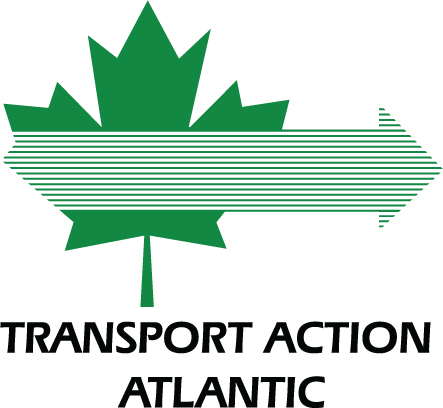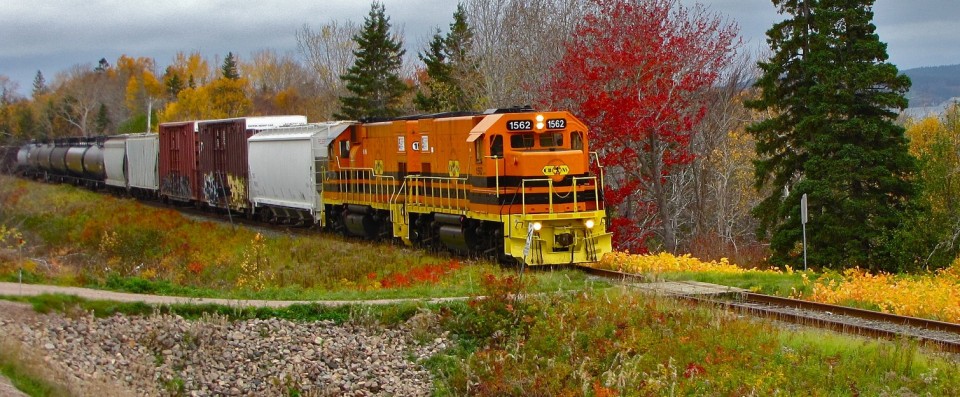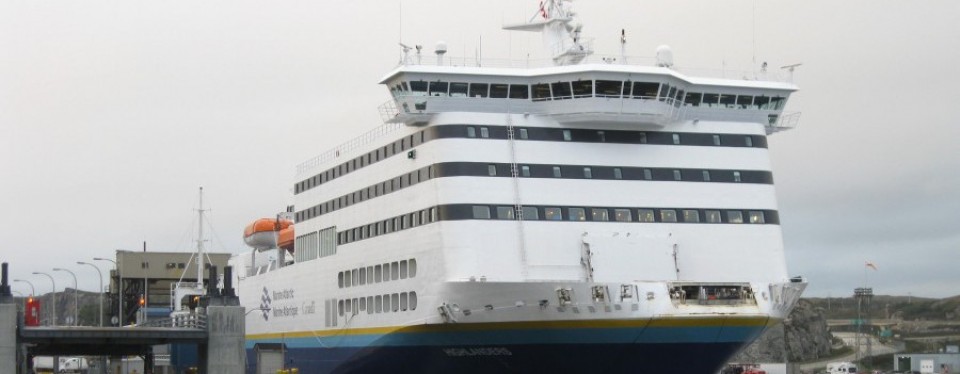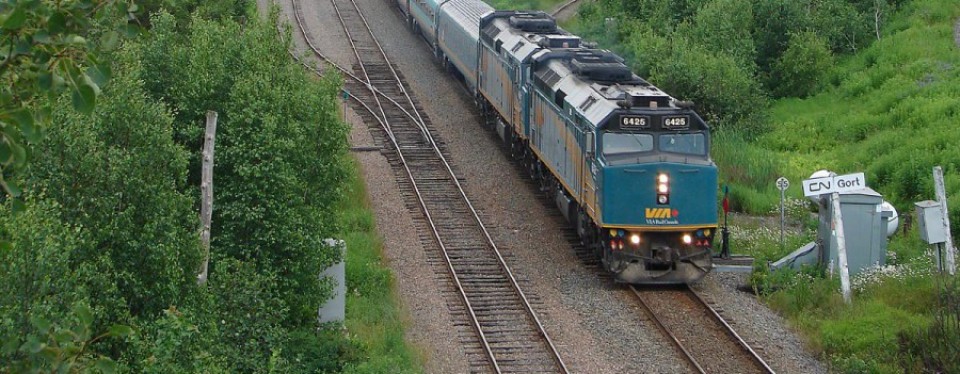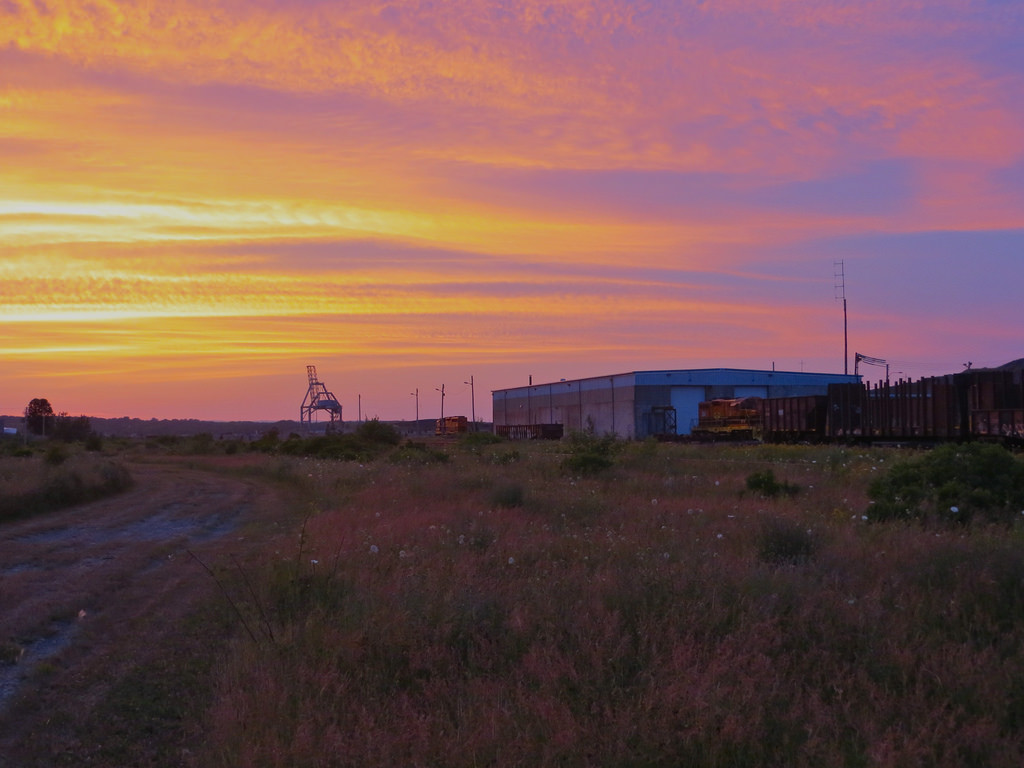
The celebrated Orangedale whistle has been silent for nearly eight months, and the rails across Cape Breton from St. Peter’s Junction to Sydney lie rusty and unused. But optimism remains high that the 100 miles of track may yet be saved for future use.
The Minister’s Rail Advisory Committee – a group representing rail users, municipalities and the business community in general – was scheduled to meet on July 30 to hear the outcome of three reports commissioned by provincial Transportation Minister Geoff MacLellan. Consultants were to examine the long-term implications of rail service in Cape Breton, and the economics of rail versus highway transportation. An engineering study on the state of the long-neglected infrastructure was also included.
David Rae – dean of the Shannon School of Business at Cape Breton University and chair of the Scotia Rail Development Society – has been one of the prime movers behind the rail retention campaign. He’s leaving CBU at the end of the summer to return to the UK, but promises that he’s still going to be very much involved. Finding a successor to maintain the momentum behind the effort was one of the agenda items for a July 28th meeting in Sydney.
Dr. Rae remains optimistic that a solution will be found, and insists that rail is very important to Cape Breton’s future. He points to the potential intermodal traffic that could and should be moving by rail – relieving pressure on the already overburdened highway network and enhancing road safety for all users. He notes that the reopening of the Donkin coal mine will create a renewed need for trains, and adds that the port of Sydney really hasn’t much of a future without a rail link.
He would certainly appear to have the weight of public opinion behind him. A standing-room-only crowd attended a public meeting in Sydney to discuss the issue on May 1. The Cape Breton Post estimated the turnout at 350 people. Paul LaFleche, Nova Scotia’s deputy minister of transportation, told the crowd that discontinuance of rail service (which occurred last December) does not mean the loss of potential. Actual abandonment of the line would – but there’s still time to do the work needed to save it before Genesee and Wyoming can even apply to remove the rails. The earliest that can happen is February 2016.
It remains to be seen just how far the provincial government is prepared to go in its efforts to preserve the rail infrastructure, or whether the Government of Canada would consider honouring the original written commitment made to the Province when CN – then a federal Crown corporation – sold the line to an American shortline operator.
Sean Burke, V-P and general manager of Polysteel Atlantic, whose company has been highly dependent on rail service, believes there is a strong case to be made. He’s confident that customers who’ve been driven away from rail will quickly return if the option again becomes available.
“I’m optimistic we can bring this rail link back,” he says. “Very much so. Nobody has changed their mind.” He suggests it is sometimes difficult to keep momentum during the summer months, but is looking forward some action in the fall after the consultants’ reports become public.
For his part, Dr. Rae says it’s very important to get these reports into the public domain as quickly as possible, in order to spark discussion in the community towards exploring all possible solutions. A spokesperson for Minister MacLellan confirmed there are plans to post all three documents on the Department of Transportation and Infrastructure’s website once the committee and the minister have had an opportunity to review them.
